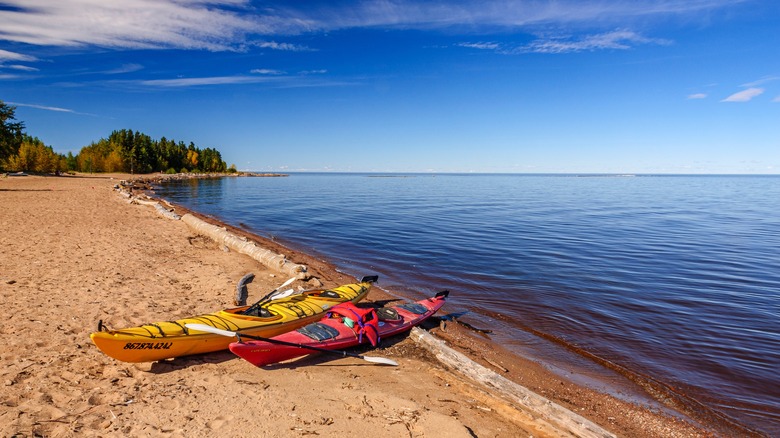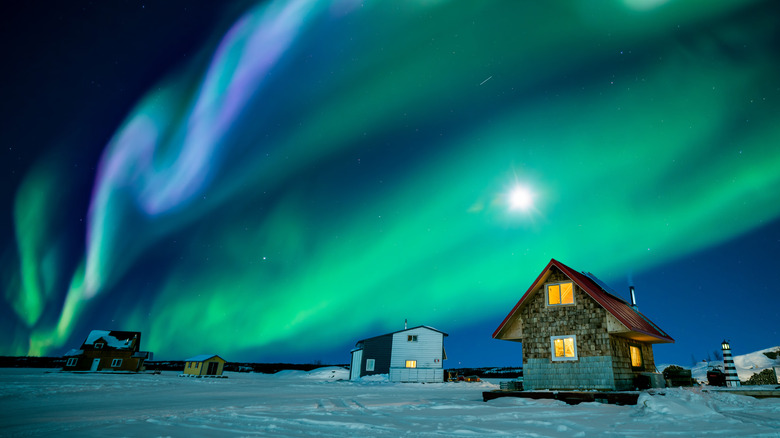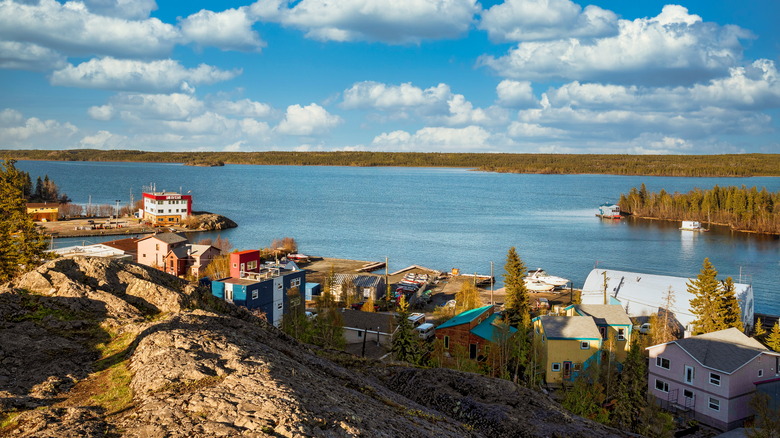As the world’s second-largest country, Canada is full of breathtaking destinations. Tourists flock to the majestic Rocky Mountains for stunning landscapes, Vancouver Island for amazing wildlife watching, and Atlantic Canada for the charming towns along bays and inlets. The Great White North has something for every nature enthusiast.
But while attractions like Banff and Niagara Falls draw tourists to Alberta and Ontario, the more remote Northwest Territories (NWT) sees far fewer visitors. This area of Canada offers a quieter, more intimate experience with nature. According to Statistics Canada, the NWT is home to just under 44,000 people, but it covers over 500,000 square miles, so it’s a place where it’s easy to find solitude.
But don’t imagine the NWT is empty. There, you can find Canada’s newest national park, Thaidene Nëné National Park Reserve, and Great Slave Lake, North America’s deepest lake. Partly in Thaidene Nëné, the lake covers a vast area of 11,000 square miles. The territory’s capital city, Yellowknife, is on its northern shore, and several other small communities dot its long coastline.
Great Slave Lake and Thaidene Nëné

Over 2,000 feet deep, Great Slave Lake is a premier fishing destination with northern pike, Arctic grayling, and trout swimming in its vast depths. The East Arm of the lake, in Thaidene Nëné National Park, is popular for fishing and paddling. The scenic shoreline is all tumbling red cliffs, small islands, and dramatic bays; the Red Cliff Island area is particularly great for enjoying these landscapes. While paddling, you can pull over to camp anywhere in Thaidene Nëné; just find a peaceful sandy beach and make it your home for the night. There are guided trips by canoe or kayak into the park in the summer months, or you can plan your own adventure. To explore Thaidene Nëné, you’ll need to get a charter flight from Yellowknife.
In Thaidene Nëné National Park Reserve, away from the lake’s shore, you’ll find the Barrenlands. No trees grow here, but wildlife like grizzly bears, wolves, and caribou are abundant, and rivers like the Thelon and Coppermine carve a path through the landscape. One visitor on TripAdvisor calls the area “a vast and magnificent wilderness.”
Thaidene Nëné sits in the larger Indigenous Protected Area of Thaidene Nëné. This is the homeland of the Łutsël K’é Dene and other indigenous groups. Several local tour operators are Indigenous-owned and operated. North Star Adventures is one, and their tours have gushing five-star reviews on TripAdvisor. Frontier Lodge also offers highly-rated indigenous-run tours.
Tips for visitors

Visitors to the lake and the park will likely start their trip in Yellowknife, the capital of the Northwest Territories. The city and its surroundings are some of the best places to see the northern lights (they are visible for up to 240 nights per year). You can also find comfortable hotels and great restaurants in the city. From Yellowknife, you can take boat tours on the lake, and northern lights boat tours are available at peak viewing times in the winter months. Summer is an excellent time to visit the NWT to enjoy abundant daylight and higher temperatures (the mercury can reach a balmy 70 or 80 degrees Fahrenheit). If you’re planning a paddling trip in the East Arm of Great Slave Lake, you’ll want to wait until mid-July when the ice has melted.
It may come as a surprise that winter is the high season for the region. Yellowknife might be one of the world’s coldest cities, with winter temperatures averaging -20 degrees Fahrenheit, but there’s still a ton to do. You can go snowshoeing on Great Slave Lake or head out onto the ice in a Bombardier snowmobile. Yellowknife also plays host to the Snowkings’ Winter Festival when a huge castle is painstakingly carved out of snow and ice.

